Tapping Into Your Power – Transcript
transcript
Tapping Into Your Power
Here to read instead of watch? Click through the headings to a section of the full transcript, or scroll away!
🔗Download the Worksheet to Follow Along🔗
(Edited for length and clarity)
A Note From Holly
Hey, WIMDIs, just a quick note before this video gets started, to let you know that this is a recording of Sabine's amazing workshop, Tapping Into Your Power.
Because it's a workshop, she's going to pause at several points to sort of allow you to go and complete some exercises. We've got a helpful worksheet for you to download here [LINK} so you can follow along with to help do some of the exercises.
One more note before I hand over to Sabine, that this workshop features something called Tapping or Emotional Freedom Technique as a way to help you sort of surface and process emotions around your experiences with power in your life.
A couple things we want you to know. One, Tapping is generally speaking well tolerated and safe for most people.
But if you're somebody who comes with a little bit of trauma on board, or some emotions that are close to the surface, we want to make sure that you take extra care. While you're doing the Tapping, if at any point it feels too much, overwhelming, or if you know, based on your own history going to therapy or working on trauma or anything like that, that this might be a little bit much for you, then we encourage you to do whatever you need to do to take care of yourself, including stepping away.
That includes not doing these exercises entirely, and getting what you can out of the rest of the workshop. Basically, what we're saying is we trust you. We know that you'll do what you can to take care of your body.
For those of you who are sitting there thinking, this is terrifying, don't worry, this is a trigger and content warning for those who need it.
If you don't feel like this applies to you, don't stress, you're going to have a great time. I hope you enjoy this workshop with Sabine.
Tapping Into Your Power
Good evening, everyone. I'm so excited to be here. I feel like an honorary WIMDI member, so thank you for having me. So, my full name is Sabine Gedeon. I serve in many capacities, but mostly as an executive coach, leadership development consultant, speaker, author, and a couple other things.
My background is actually in human resources. I came into corporate, you know, bright-eyed, bushy-tailed. I was going to climb the corporate ladder, until I wasn't.
I've been doing this for almost the last six years, working with men and women. But of course, I enjoy working with women and helping them navigate, not just careers, but life in general.
Introduction to Power
We're discussing, what is power? Before we get into the place where we're talking about empowerment and how to gain your power, it's very important for us to take a step back and define what power is, how we relate to it.
This is something that I had been working through both with my clients and even with myself through my own journey. I got to a place, about three years ago, where I was at in a life transition.
I had to ask myself the question, who am I? It's a very simple question, right? Who am I? Most of us, we know that answer. We think we know the answer.
After I got through the whole process of, all of the identities and all of the labels and everything else, there was still a little bit of emptiness.
So, I thought well, let me start asking my clients. Let me incorporate this as part of the coaching process and ask them. And it was the same process.
It was, I'm a mum, I'm a dad, I'm, you know, an engineer. I'm this, I'm that. Okay, now we got all the identities. What else are you? Oh, well, you know, I'm fun, I am adventurous. I'm da, da, da, all these characteristics. Okay, but who are you?
We got to the same point of, well, I don't know. I don't know, outside of those roles, outside of those identities, outside of those labels, that's all I got.
And it’s not a bad thing, it wasn't a place for judgement. That's where I knew that we were in a good place for a foundation. I'm doing this work, and I start working with my clients through this.
I started to examine, if these leaders are unravelling, in terms of understanding who they are, how does that correlate with leadership? I did a little bit of deeper digging. You know that old adage, are leaders made, are leaders born? Which one is it?
I got to another truth. At least this is my truth, that leadership is not about the title, the role or anything else, but leadership is an innate characteristic that we all have.
Of course, people said they were leaders because they were in a particular position, but if we're all leaders, why is it that some, AKA men, get to be leaders in a certain way? And us women, we aren't leaders in that same way, if we are all truly leaders.
That's when I used my coaching clients to help support this, this "research” here. The conversation went into a little bit more beyond, if we're all leaders, we see leadership being demonstrated a certain way, what does that mean, what comes with leadership?
That's when the words such as power, authority, influence, control, started to come up in the conversation. I started to ask, well, what do those mean? Because oftentimes those are used interchangeably.
I started having conversations with other successful women in entrepreneurship or in business. Well, how do you feel about power? And they started getting a variety of different responses around power.
Either it was just like, "I'm not a fan of power", or, "I really, I'm not into that", or, power seemed a little bit more like control. Everybody started to share what their experiences were.
I did a podcast, actually, a whole podcast series, and I wanted to talk to women about power. You had a sect of women that were going around it. Well, let's talk about the mental health aspect and how that shows up in power.
I thought, oh, wow, we really have some work to do here when it comes to power. It almost felt similar to talking about money, right? You're not going to walk up to anybody and say, "Hey, how much money do you make?"
There was this disconnect between us and how we feel about power. I know I'm generalising here. I continued to do the research around power, authority kept coming back, there was more resistance to authority than influence or power.
When I dug into that a little bit, in order to be an effective leader, you need some level of authority. But why is it that we're more inclined to move towards influence versus authority as women?
Today I really want to focus on not just breaking that down. I want you to start to think about what does power, authority, and what does influence mean to you? How do you differentiate the three? Or do you even differentiate the three?
Then we're going to dig a little deeper to how do you feel about it? Because, as I'll share, a lot of that foundation and how we feel about these words and how we see them modeled, that didn't start with where we are today. That started much sooner.
We’re starting to look at what is your current paradigm, or your current beliefs around those words. And then, we're going to do some digging, so that if you want to, you get to redefine what power means to you, what authority means to you, what influence means to you, what control in some capacities, because that's another word that has come up.
Your Past Relationship With Power
So, now think about babies when they're starting to talk. What is the first word? Maybe the first, the second word they say because there's some debate around what the first word is.
After mama and dada comes, no. So, “no”, this is the one that I'm zoning on. No, it's the word that we hear them say often.
Think about any 2-year-old who is having a temper tantrum, or even if they're not, right? You’re just offering them breakfast, or a pink shirt, or a blue shirt. You'll hear them say, no, incessantly, they love that word. Everything is no.
Part of the reason for that is at the age of two, that's when we're starting to explore power. That's when we're starting to learn to assert our own power. Often they use that word no because they get to say no and they get to command what it is that they want or don't want at the time.
Not only is it just demonstrating power, but you also notice around two, is when they start walking, or getting into stuff. What happens? Mum sees them going next to the stairs, "No!", right?
They hear no, and it's with a frightening jolt or fear, right? Well-meaning, but it's that their parents' way of protecting them. Or if they do something, you'll hear, "No! Don't do that."
That's the word that they're hearing. Depending on how severe, or how loving that “no” comes across, they start to internalize what that no means. We can see that, or we can take in that “no” to mean “no” is a bad thing. No is a place for me to be fearful, or for me to turn into myself.
We grow up and get to ages seven to nine. Seven to nine is where we start to explore. We're a little bit more aware of what's going on. We are playing sports, we're in activities, we're noticing what's happening, we're watching or listening to the news while our parents are.
We're hearing things that are happening, whether it's at the White House or whatever. I remember back when there were newspapers, I used to read the police blotter. Don't ask me why, right? But, you become aware of what's happening during that age.
Obviously, the authority that's taking place when you're in school and you have authority figures outside of your parents at that stage.
And then from 12 to 13, that's the next stage where we start playing with our power, where we're trying to figure out the who's who in the zoo.
We're looking at our peer group, and we're trying to figure out, okay, who's the leader? John is the head of the basketball team, so he's going to be immediately the leader, and we're going to be followers.
We're observing how that works out in the school structure. We're looking at how that looks in our society. This is also a time where you start to assert your authority at home. That's why at 13, teenagers, mums and daughters, they start fighting, boys and dads, right? They start trying to jock for power, if you will, in the home.
Then we call the kids rebellious, terrible teenagers, or whatever labels we put on it. But again, that's another state in our development, we're trying to figure out what is our relationship with power.
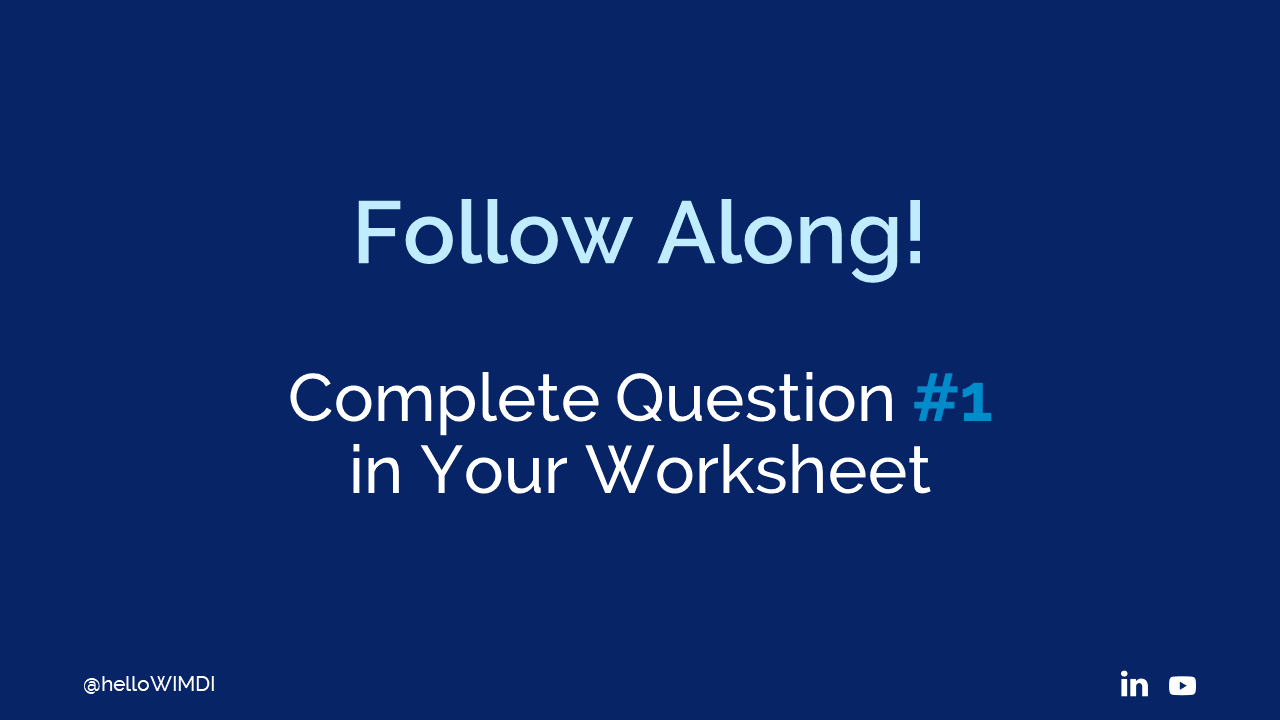
Your Current Relationship With Power
We've uncovered your, earlier, intro or experiences with power. Now we're going to take a look at how it may be showing up in this stage of your life. Historically, many have experienced power through a competitive or more aggressive lens.
We know if we just look at any sect of society today, that the perception is that when you think of power, we think of very, masculine, assertive, dominance, unilateral decision-making, the patriarchy, if you will, that exists.
That's what a lot of us associate with power, or what we see in our day-to-day for the most part. And, given that a lot of you have worked in male dominated environments, you know that there's the how the men show up and what's allowed and acceptable.
When women try to show up that way, oftentimes they are labelled as aggressive, or bossy, or the other B word. We'll talk a little bit about where power is sourced a little later.
But if we're all in these positions, if we're all able to express power, if it's something that even at the age of two we've been exploring and we've been playing with, it's something that is okay to have.
Our society today really sees power as being something that is reserved for our male counterparts. Not only that, depending on some of the cultural background that you have, the messaging that you get around power, that's influenced and that perception is influenced.
I was born in Haiti, so I'm an immigrant here, and I grew up in a cultural household. The women do the chores, the women cook, the women do all the stuff, right? And the men get to play and sleep all day and do nothing.
We are conditioned depending on your cultural background, you need to be the caretaker, you need to be nurturing. Whereas, in some other environments, that's not the case.
Then we look beyond the family eco-system, and we look into the workplace. We see those power dynamics playing out as well. When women are the child bearers they have to figure out how or when to leave the workforce. How am I going to manage this newborn, and take care of all my employees and be able to rise up in the career?
That double bind or that standard that we have as women in terms of when we do get power, and/or when we are allowed to demonstrate power, and I mean that we're actually sitting in positions of power. That subtext, it's okay for you to have a position of power, but you have to be feminine with it.
You can't be aggressive; you can't be direct. There are all these messages that we've picked up when we've stepped into the workforce. And even in school too, college, we had some of those messages, but certainly all these things are being reinforced when we get into the workforce.
It's been like this forever. But when you start to think about it from the perspective of, these were my earlier experiences, within my household, within my friend group. Now in my workspaces that I've been in, these are the dynamics that I've seen. These are the paradigms.
The piece that we're going to go into next is really understanding, how much of that is still showing up for you? Or how much of other people's paradigms are you still living out? And at what point can you, or do you want to, choose the paradigm that you want to have, or the relationship that you want to have with power.
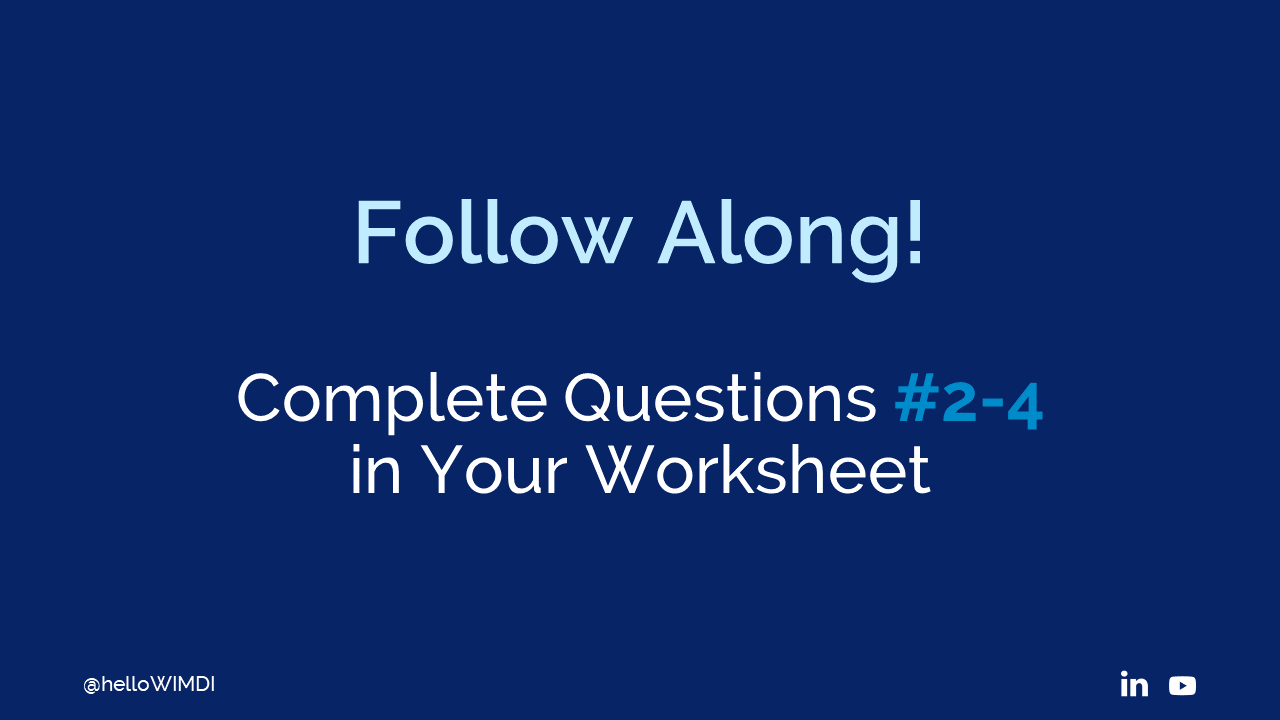
Introduction to Tapping (& Demo!)
Tapping, or EFT (Emotional Freedom Technique) and we'll walk through the process of what that looks like. It's really meant to help support you in releasing any emotions that you may have stored.
We've been asking you to share some of the emotions. There is a reason behind that. Whether we realise it or not, we often internalise messages or emotions around power, and we've stored them.
These emotions, when we feel them, they're energy. They get stuck in our body when they get stored. And oftentimes we don't even realise that they're stuck in our bodies, and they'll start to show up different ways.
To help facilitate the release of some of those emotions, we're going to go through this process and release some empowerment energy. And so, Tapping, again, it's EFT, which is Emotional Freedom Technique.
There are specific points that are acupuncture points that we tap with our fingers, and I'll show you how to do that, it creates like this physical switch that turns down the fight or flight response.
Our nervous system, it just turns it down, so that we can let the emotions that have bubbled up, actually go. And if you've never heard this before, if you've never done emotions work, we're only supposed to feel an emotion for 90 seconds, that's it.
When we get mad, when we're happy, when we're joyful, whatever it is, it's only supposed to be for 90 seconds. Today we get to release some of that if it's come up for you.
I'm going to walk you through what we're going to do, you're going to repeat after me, some of these messages, as we tap on the points.
While we're doing that, you're just going to repeat after me, and really just feel into your own body and figure out what feels good to you, what makes sense to you and continue to move down that path.
We're going to start from the top of the head and we're going to tap. When I say tap, two fingers, your index finger and your middle finger, you're going to find the places and you're going to tap with them.
You can also use three fingers, but just start with two fingers. Feel it out to see what feels good for you. I want you to notice the places in your body.
So, if I'm tapping on the top of the head, but you really want to stay in the collarbone area, that's completely fine as well. Just know that there's no magic to how many times you tap, so it doesn't have to be like five on each. It's really just the more that you tap in those places, it's calming that fight or flight stress response.
It may not feel like anything's happened, but trust and believe something is happening.
Let's begin. I want you to follow after me as I move through these Tapping places, with my fingers.
We're going to do from the top of the head down and you have the image, so that you can follow along, just in case you're not quite sure where it is that I'm talking.
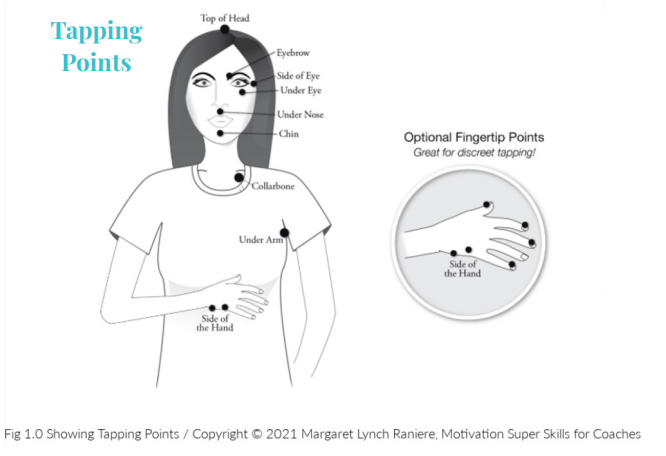
When we start with the top of the head, find the crown of your head, and you tap there with your two fingers. Get a feel for that. Next, we're going to move to the eyebrow point, right where the bone is on the side of your eyebrows. Tap there on both eyes, or you can do just one if that feels better.
Then we go to under the eye, right where the bone is. You can also do the side of the eye, right where your eye-shadow ends, if you're wearing it. Next is the top of the lip, where you have that little dent.
The next one is right underneath your bottom lip, on the chin. Next is your collarbone, not on the collarbone, but right underneath the collarbone. You tap there and you can move, in and out.
Then the next one is under your arm right where your bra strap is, you tap there. The last one is the side of the hand. A side karate chop right there.
A cool trick, if you're in a meeting and you're having that moment where you're feeling frustrated, you can put your hands under the desk and you can do this, and it'll still help you release that frustration.
Follow along with me. I'm going to say some things and then you're going to repeat it on your own.
Before we start this, sometimes some of this can be really, really triggering. It can create some really, really strong emotions. I don't want you to continue, and push through, just pause, just stop.
Stop repeating after me, and maybe just continue to tap. And if that feels like too much, just stop. You can either put your feet on the ground to ground yourself, or you get up and walk away to release some of that energy.
We want to make sure that this is a safe experience for you. Lean into your body, and if it feels like too much, it's okay for you to stop.
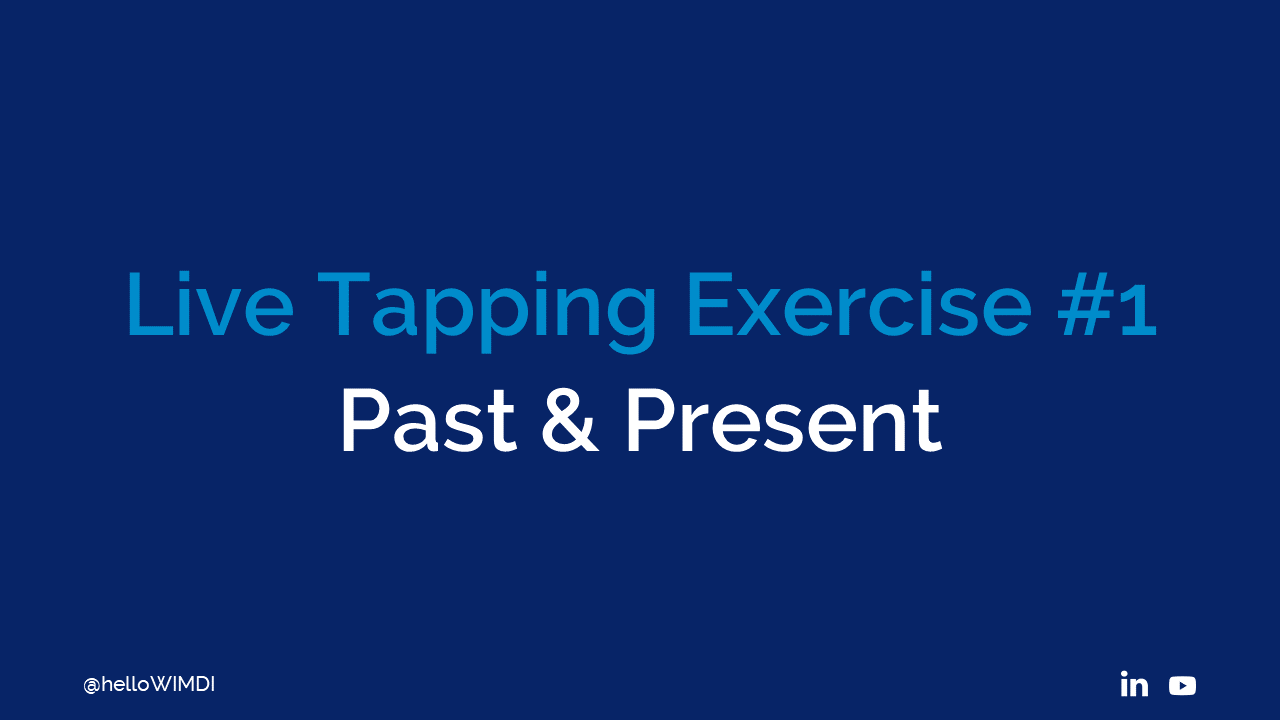
We're going to go ahead and get started. First, I'd like you to take, just three deep breaths. Close your eyes. One, two, and three.
I just want you to think right now, on a scale from 1 to 10, how powerful do you feel? So, 1 being powerless, 10 being powerful.
All right, now I'm going to have you repeat after me as we go through these tapping points. So close your eyes, deep breath again.
I'm really feeling it. I am feeling it. I feel the tension in my stomach. I feel the trembling in my voice. I feel the frustration.
Oh, it's so frustrating. I hate feeling so controlled. Ugh, this is suffocating. And I just can't take it anymore. The discomfort, the unnerving. I feel so unstable.
I just hate being asserted upon. I hate having to put others' needs above my own. This feels so disempowering. Ugh, this is exhausting. I'm tired of being the cheerleader. I am so over accommodating everyone else. What about my needs? I'm coping the best I can, but what if it gets worse?
I want you to pause and take a deep breath. Okay, then we're going to start again.
Eyes closed, you start tapping in whatever point feels good to you. I'm going to start at the top of my head.
I'm so tired of the bullying and the disregard for my opinion. I am over accommodating everyone else. I'm tired of feeling controlled.
I want my voice to be heard. I want my voice to be heard. I don't want to be the nice girl. I'm tired of being the nice girl. This is disempowering, and I'm over it.
And the truth is, I just feel betrayed. Like I've betrayed myself. I feel betrayed by my family. I feel betrayed by my friends. I feel betrayed by my coworkers, my leadership. It's just too much.
Take a deep breath. You can keep tapping. Keep your eyes closed. Just tap on the places that feel good to you. I just want to do a quick check-in. What's going on inside for you right now, on a scale of 1 to 10, how intense is it?
And then also notice where do you feel it in your body. I want you to take notice where these emotions are showing up for you. Okay, deep breath. We're just going to do one other round of tapping to close this out.
Well, it feels a little better, but the truth is, ugh, still feel disempowered. The truth is, I'm still tired of not having my needs met. The truth is, I still feel so unstable. The truth is, it's still unnerving, it's still so disempowering.
And most of all, it's exhausting. It is exhausting. What if it gets worse? What if, what if I continue to feel disempowered? What if, what if I never have my voice heard? I never feel stable.
What if, ugh, it's too much. It's too much. And I don't want to feel any of this anymore. I don't want to feel any of this anymore. It's too much. It's overwhelming, and I'm over it.
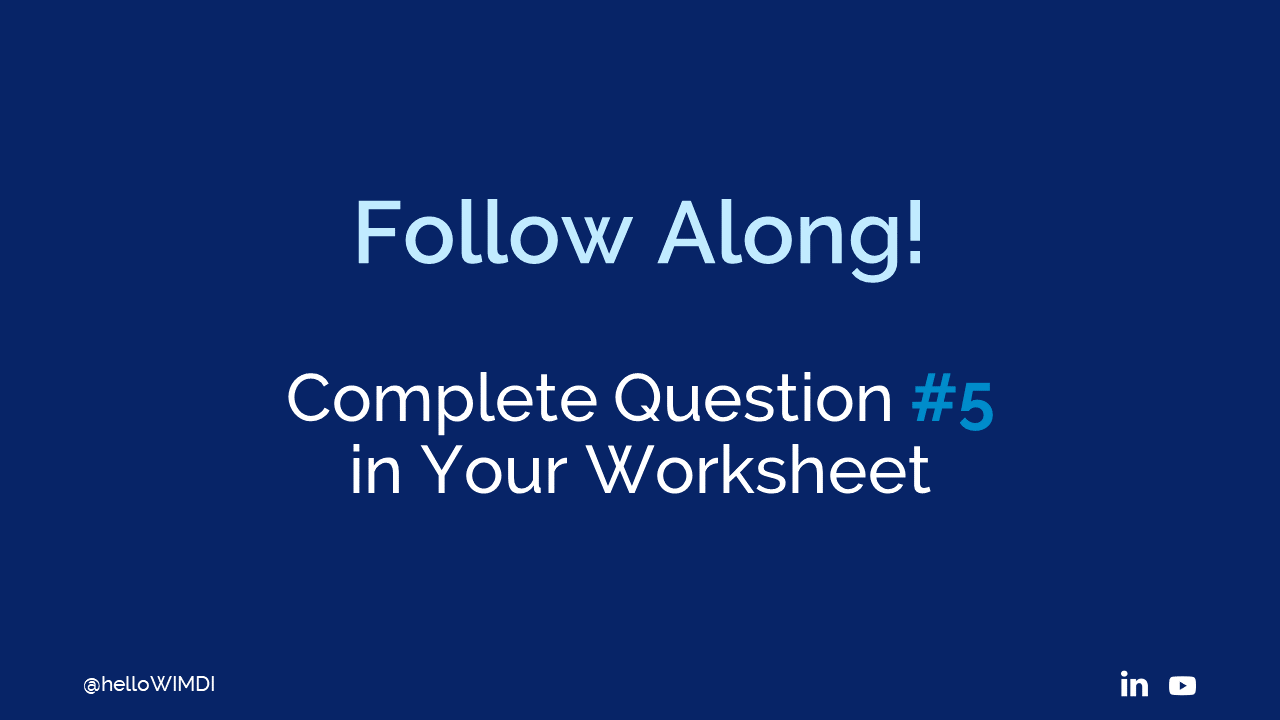
Your New Relationship With Power
In the beginning, as I shared the past, a lot of our paradigms around power, around authority and everything else, they were literally given to us by our parents, our caretakers, our siblings, our friends, school teachers, you name it.
Then when we got into corporate America, when we got into our workspaces, there were the paradigms based on the structure of the environments that we're in.
Now that we've released some of those emotions, we get to establish a layer, if you will, that's based on what it is that we want.
I want you to think about, if you ask like a 4-year-old, what do you want to be when you grow up? And they want to be an astronaut. They have no limits to their imagination.
Just for a moment, I want us to act like four year olds who are excited about life. They have not paid a bill yet, they just know their toys, their friends, and they know that they're loved for the most part.
Let's take a moment and channel that inner child within us, pause and reflect. What would life look like if we woke up tomorrow and there were no barriers.
There were no social norms holding us back, we didn't have any personal insecurities clouding our judgement. We weren't comparing ourselves to the next person.
There weren't any limitations on our ability to climb up the ladder or to lead, whatever it was. No limits, no limits.
I want you to close your eyes, and visualise, if there were absolutely no barriers, if I could wave this magic wand, what would that look like for you when you were able to freely express yourself?
Your ideas, your voice carried weight. You knew that because you're at the table, that there was value. What would that look like?
Envision a world where power is not wielded as a weapon, but like someone said that there's shared power. We're all working towards a big picture to support everybody. Each piece of the puzzle is worthy, is valued, has a voice.
What would that look like? What would that feel like? How would that change how you feel about yourself? How do you feel about the space that you take up? Be it at work, in your home life, your personal relationship.
How would you step into your power? How would your values show up? Which values would show up?
As we allow ourselves to go back to that bright-eyed, happy, bill-free, carefree little girl, we can bring her into the present.
As we bring her into the present, how powerful is she? How effective is she? How much of a change agent is she? Because she knows there's no limits.
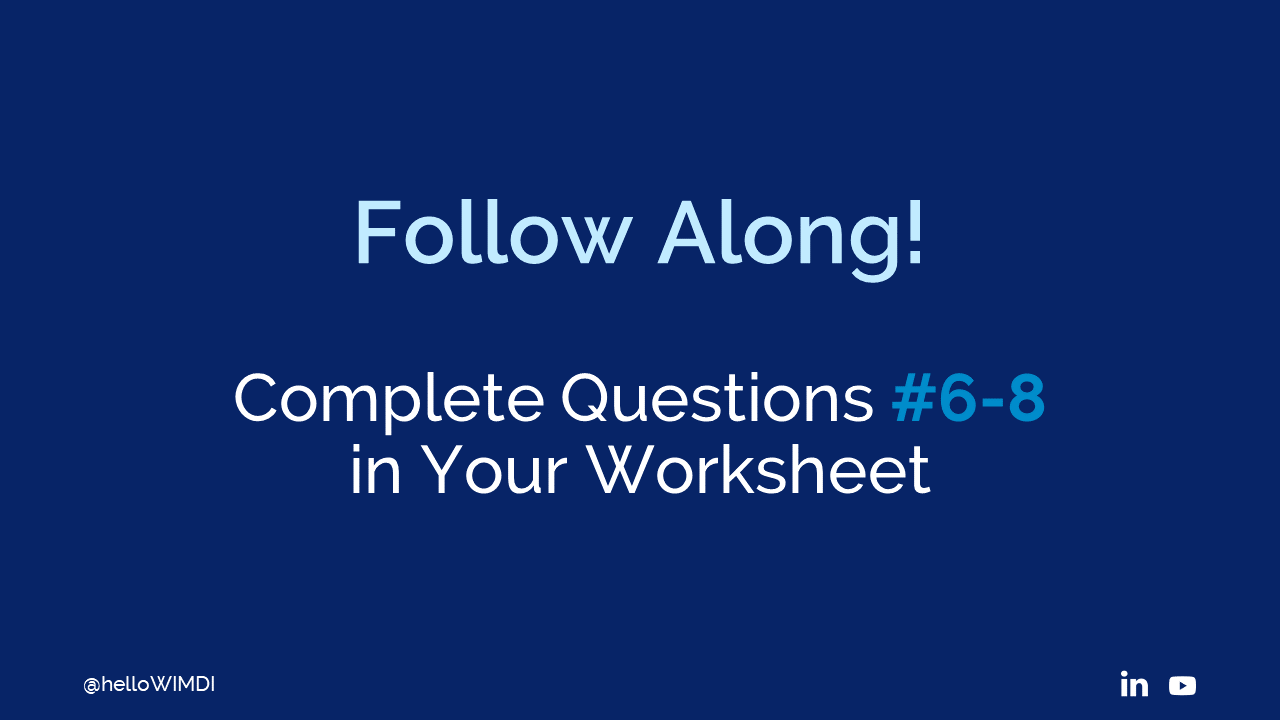
Before we get started on our next round of tapping, I just want you to take a deep breath. Maybe one more. In through your nose and out through your mouth.
I want you to lean into your own body and do a check-in. What emotions are showing up? Where do you feel them? And then on a scale of 1 to 10, how intense is that feeling?
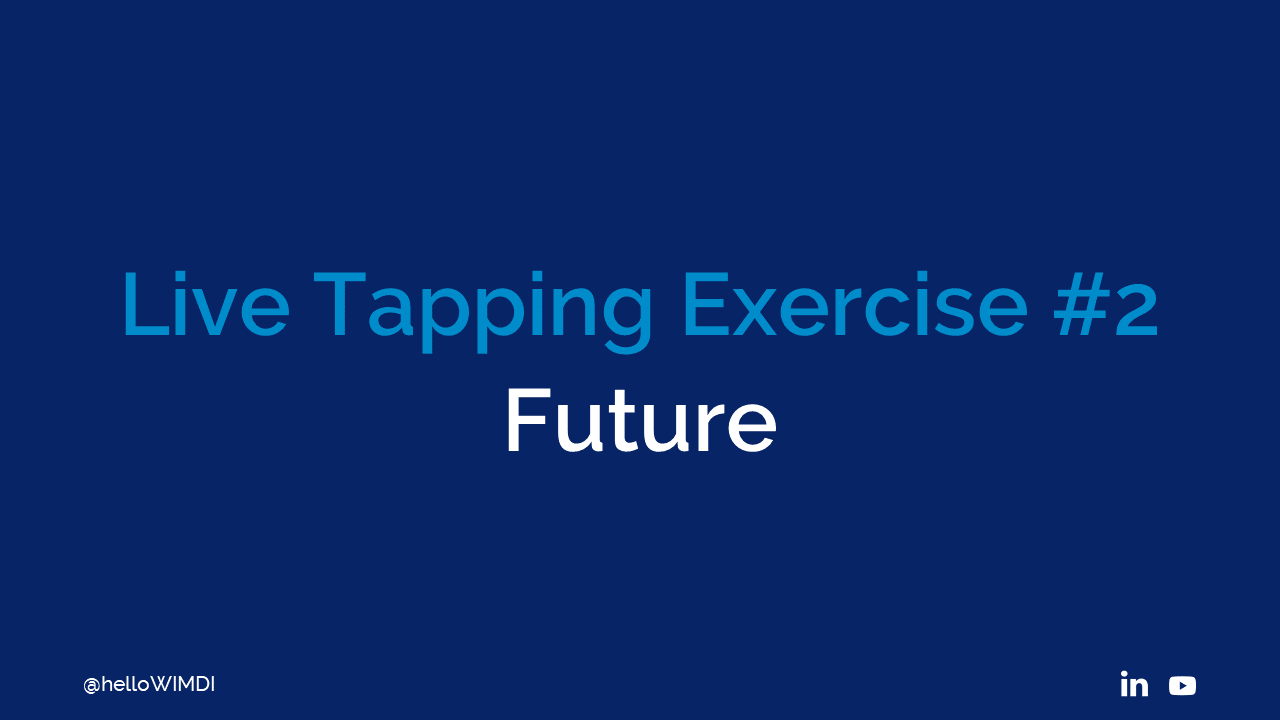
Depending on where you feel them, if there is a tapping point that I've showed you that is near, you can leverage that. I'm going to have you repeat after me again, as we did earlier, as we go through the tapping points.
I'm going to start with the top of the head and move around. Feel free to pick what works best for you.
As I come into my body and my emotions, I feel more centred and I feel more clear. When I come out of feeling frustrated and boxed in and angry, I get to let go of some of those painful feelings.
It feels so good to let go of some of those feelings. The ones I didn't even know I was still holding onto. It feels good to let go. It feels calming to let go. It feels freeing to let go. It feels powerful to let go.
Now that I've let go, I get to be centred. I get to be brilliant. I get to be in the flow. I get to be clear. I get to be focused. I get to be powerful.
My boundaries are grounded. I am grounded. I am more steady and more ready.
Pause, take a deep breath. Okay, we're going to continue.
I honour everything I have experienced up until this point. I honour who I have become. I honour my strength. I honour my resiliency. I honour my tenacity.
I am strong. I am graceful. I am powerful. I am enough. My boundaries are honoured. My voice and opinions are honoured. My value is recognised and appreciated.
What I give to the world, my family, my career, and my community is valued. I am important. I am fearless. I am a force.
Starting today, I choose to feel, I choose to believe, and I choose to reclaim my power and stand in the truth that I, [insert your name], I reclaim my power.
I stand in my truth, and I declare that I, [insert your name], I reclaim my power. I stand in my truth. And I declare, [insert your name], am powerful.
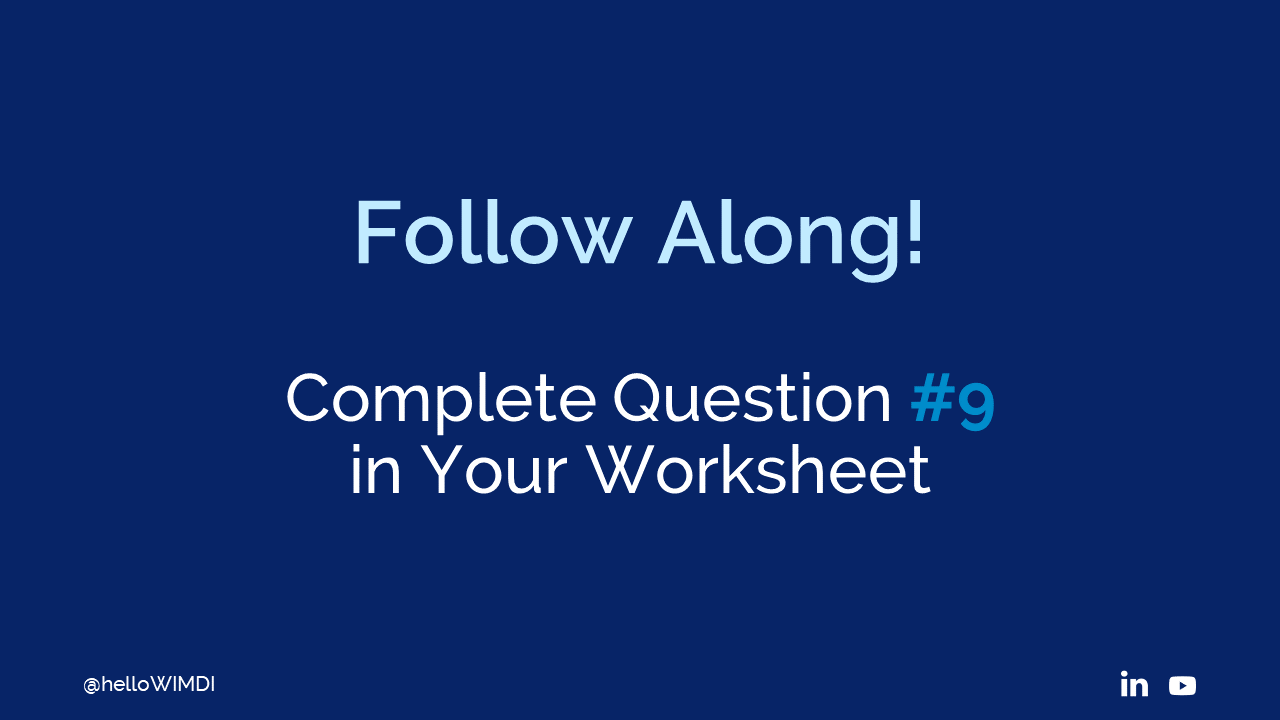
What’s Next: Leaning Into Courage
Now we've tapped into our emotions, we've tapped into our power.
We are feeling, not just empowered, but powerful. And then we go back into the world and the world says, "I'm sorry, what, who are you? Where did this come from? You left here, today feeling like, or being this person, and now all of a sudden you're this?"
I didn't want you to leave, with your bubble getting burst too quickly and wanted to create a little bit of a soft landing for that.
It's important to understand that whenever we step into our power, whether that's professionally or personally or whatever, we essentially are renegotiating any power commitments we made with other people.
While you may have had a breakthrough, or you've had your sense of calming, whoever else is in your life, personal and professional, they weren't in on the session.
They're expecting you to show up the same way that you've always showed up. What tends to happen is when we've made that one step forward, and you hear the one step forward, two steps back, that's why.
You've moved into a new place, they haven't, and because of the dynamics, they want you to come back to where it is.
I want you to be prepared and to understand that when you go back into work and someone says something and you're thinking, "Who are you talking to? Don't you know I'm powerful?" They're not aware.
If there's resistance and pushback, it's part of the process. What I want you to understand is, please don't back down.
Your friends, your family members, your colleagues, they may be a little bit challenging. They may be challenging to the new you, not because they don't want you to be empowered, but that might threaten their position of power in your life that they previously had.
It doesn't have to be overbearing. Don't back down. Just because someone feels threatened by your new level of empowerment, it doesn't mean that you have to stop your growth.
All that we did today was crack part of an egg. Personal development, professional development, it's a lifelong journey. You get to continue this growth path in whatever modality works best for you. We just gave you a tool that that could help you do that.
When it comes to renegotiating your power, a couple things that I want you to be mindful of. It means, and we've heard this word, boundaries. You're going to have to set clear boundaries. And not just set them, reinforce them.
You set the boundary, you communicate the boundary, and when the boundary is pushed up against, you reinforce that by communicating it and re-level setting.
Personal development and growth is all about accountability on our own too. It's not always the other people. So, is there anything that you need to apologise for? Redefine any prior commitments you've made that are no longer aligned.
If you didn't have boundaries in place, and now you go to set boundaries, what do we need to realign? What do we really need to renegotiate here?
Then set a new schedule, a new habit, a new routine. And I entered this piece because this is something that you're going to have to continue to do.
You're going to have to continue to focus on leaning into your emotions. You're going to have to continue to focus on identifying when someone triggers you, whether it's a happy trigger or a not so happy trigger.
This is work that you're going to have to figure out. When do I want to schedule this? When do I want to do it? Will I start yoga? Will I continue doing EFT? Whatever that looks like for you, this is something that I encourage you to continue.
It's also going to mean that at some point you may have to cut some people off. And I know that that's the hardest thing for us to do at times, because we want to love everyone. We've been conditioned to love everyone, right?
The thought of cutting people off, sometimes that feels uncomfortable, but if it's no longer serving who you are or who you're becoming, you get to make that choice to say, is this person going to support the new version of me, or are they going to try to pull me back to the old person?
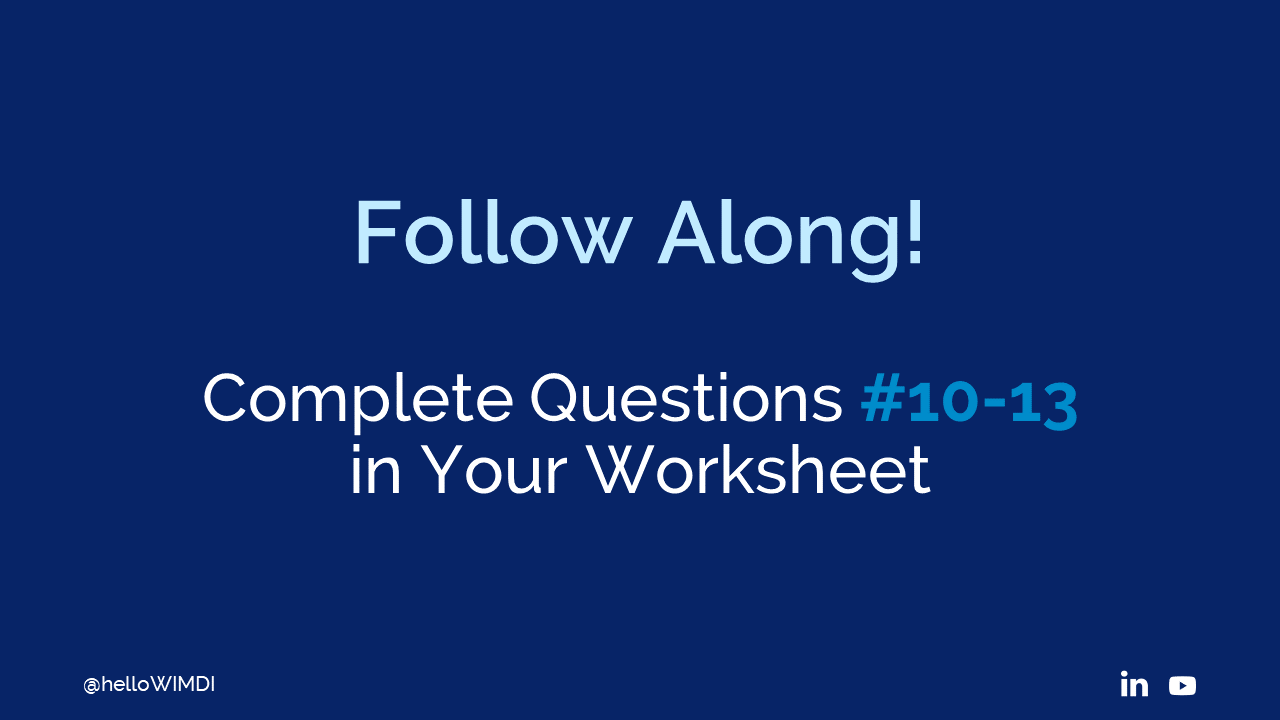
More Fun Stuff!
If you loved reading this transcript, you might like to watch the video or learn more about our amazing speaker! Check it out: